In this page, we introduce common behaviors of hamsters and the emotions these behaviors indicate.
If you’re interested in understanding your hamster’s emotions through its actions, be sure to check it out!
Common Hamster Behaviors
Rubbing the Face (Grooming)
Rubbing the face while grooming is a gesture to keep whiskers clean and maintain sensitivity.
This behavior is often observed when the hamster is relaxed, but it may also do this when trying to calm itself down when feeling tense.

Standing Up on Hind Legs
Hamsters sometimes stand up on their hind legs, with their front paws poised in front of their chest and ears standing straight up.
This posture indicates they’re trying to gather information from a higher position to detect distant sounds or smells.

Shuffling Forward
They may shuffle forward as if crawling. This behavior indicates vigilance, especially in unfamiliar surroundings, as they cautiously sniff around while moving.
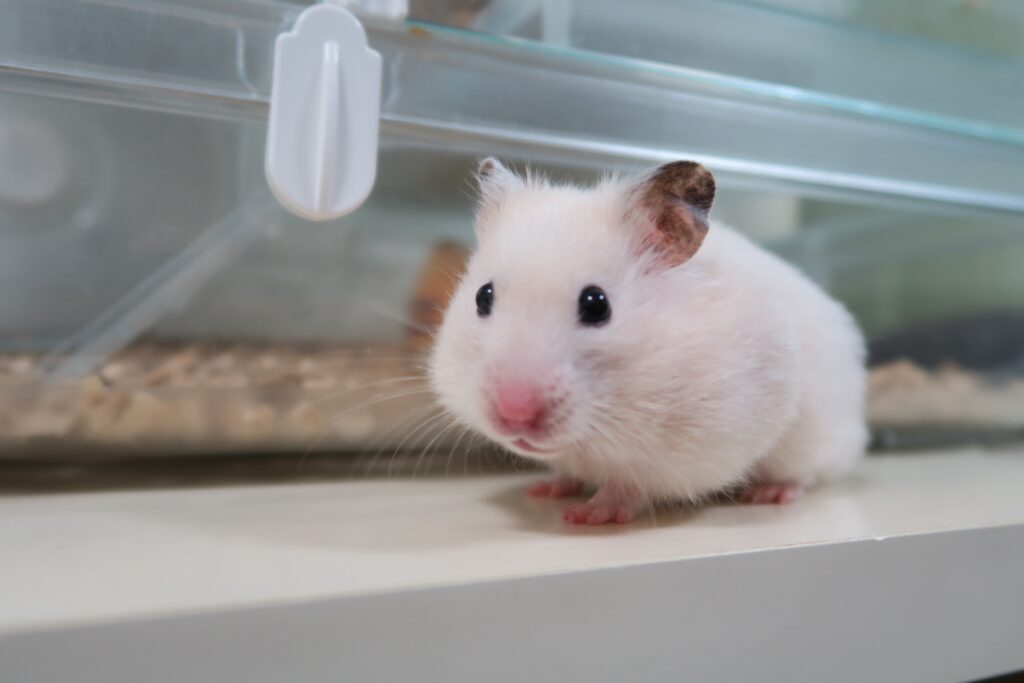
Lifting One Front Paw
Lifting one front paw while standing still is a gesture commonly seen when the hamster is indecisive about moving forward or retreating.
They’re prepared to retreat if they sense danger and feel fearful.
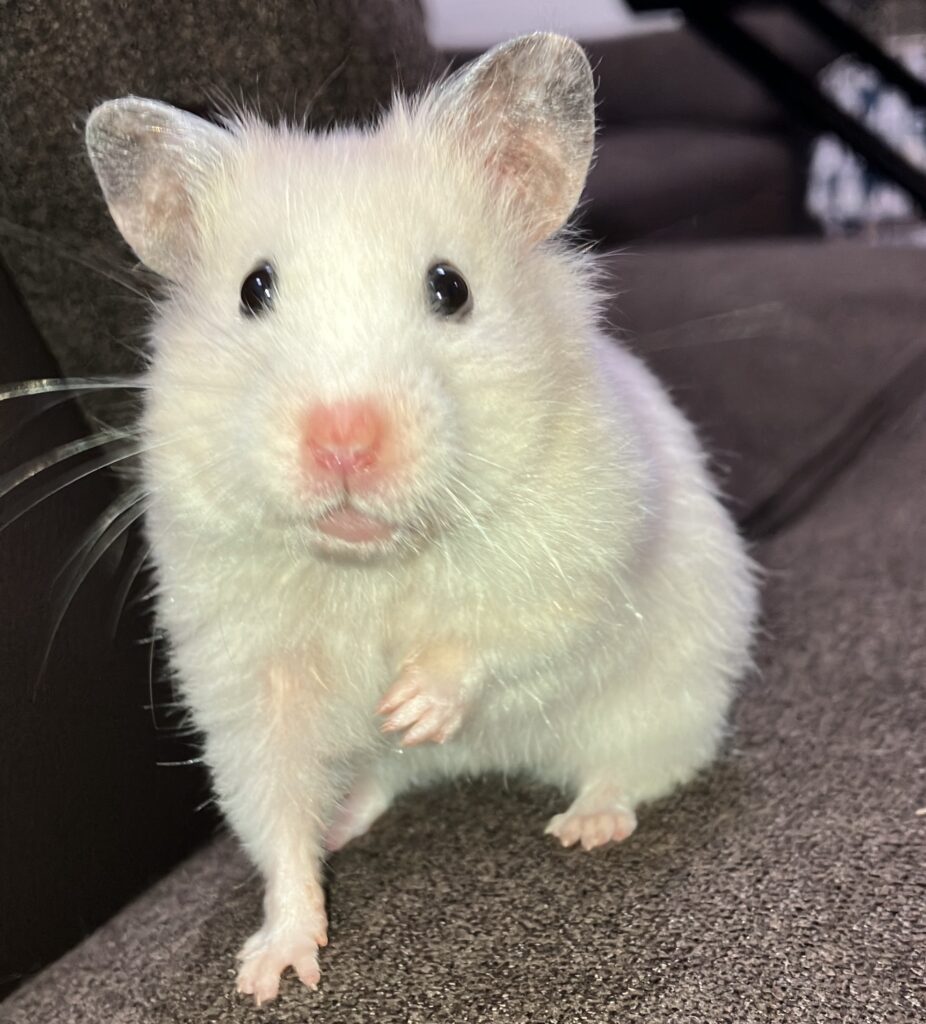
Freezing in Place
They may freeze in place while staring at a fixed point, a behavior exhibited when they sense danger, attempting to conceal their presence from potential threats.
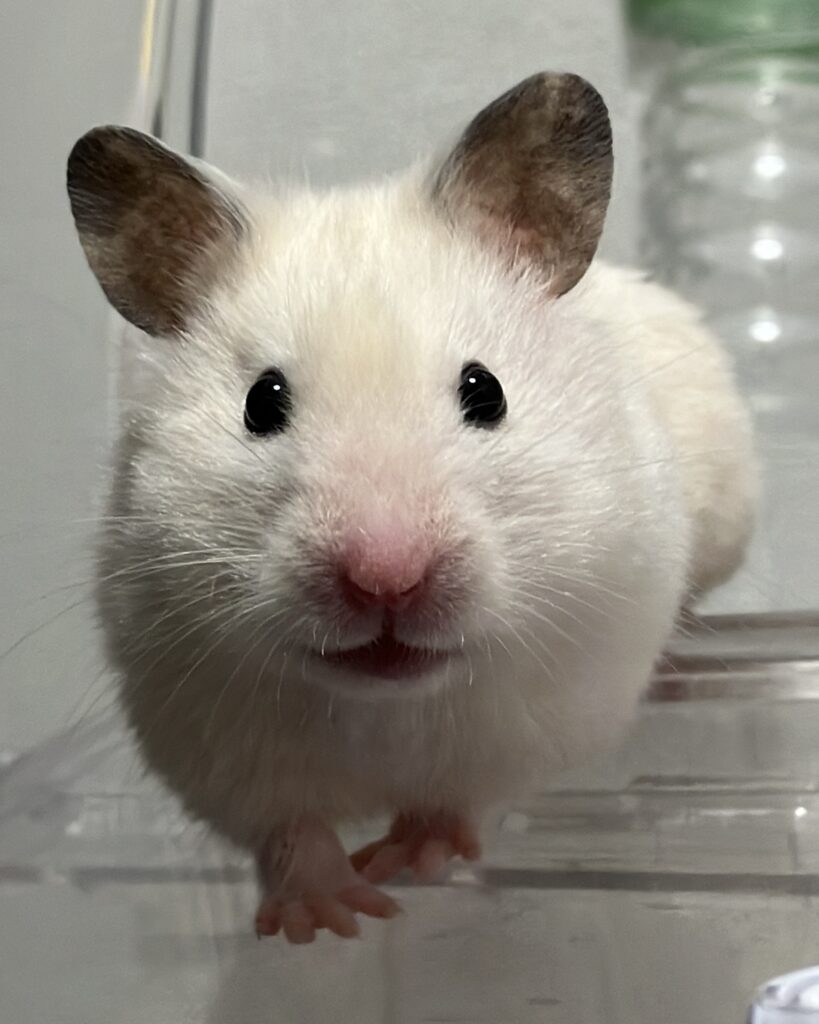
Running in the Wheel and Looking Around
Running in the wheel, pausing to look around, and then running again is a common behavior.
Even though they’re running in the wheel, hamsters may feel like they’ve traveled a significant distance.
Therefore, they’re often checking for things like “how far have I come?” or “are there any food or other creatures around?”
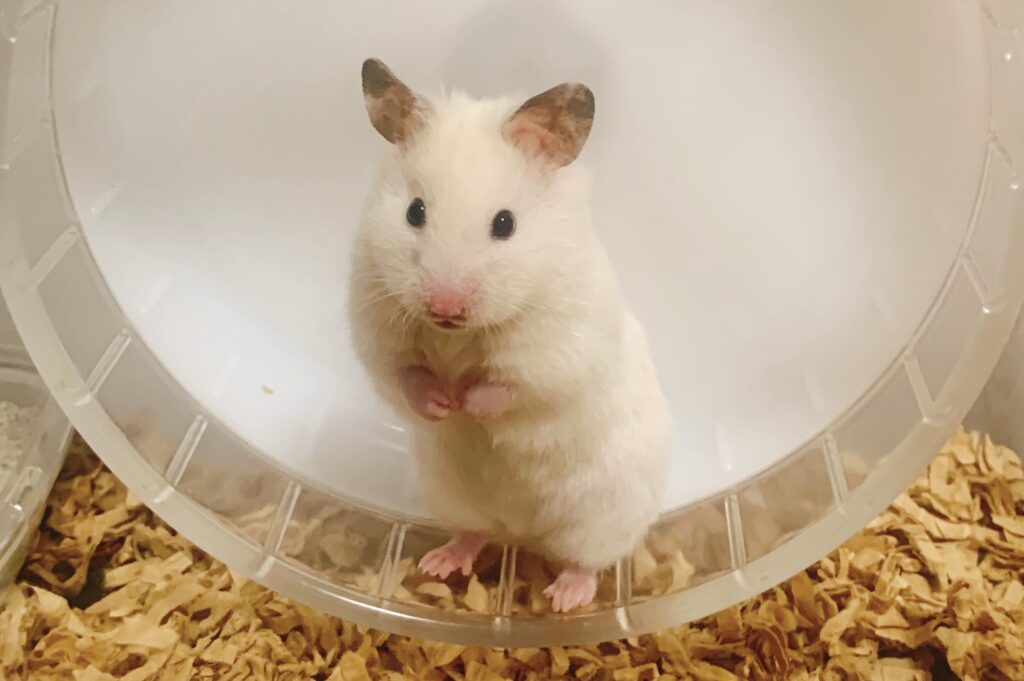
Chewing the Cage
While there could be several reasons for this behavior, it’s often associated with feeling stressed, dissatisfaction with the living environment, or a desire to escape.
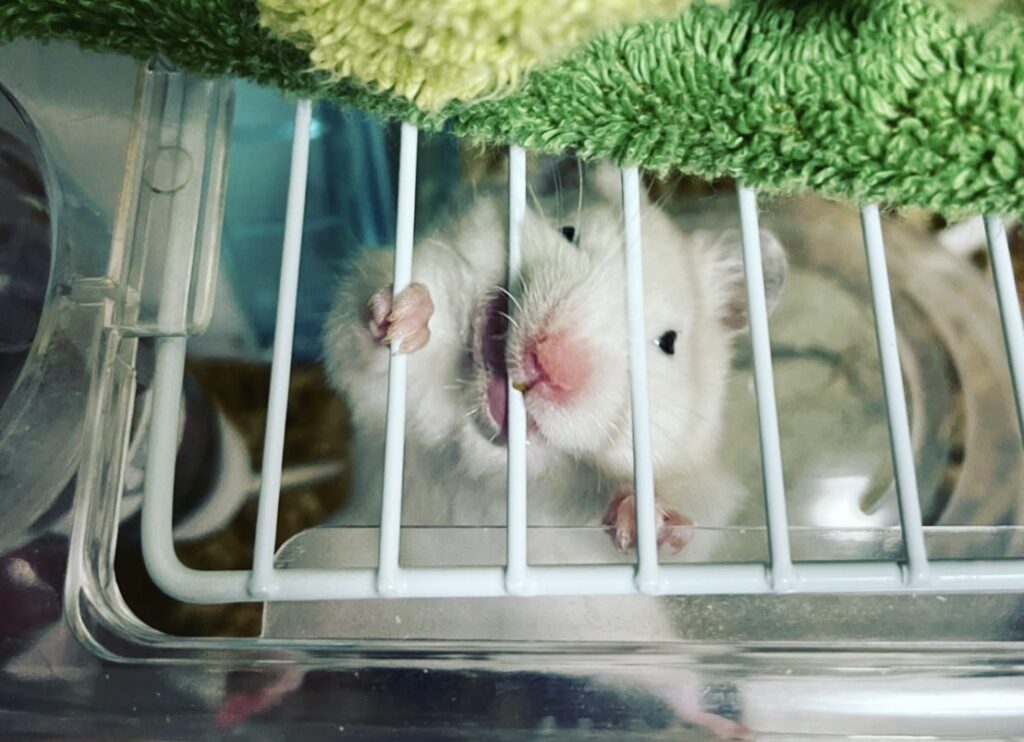
Neglecting to address this behavior may result in dental issues, making it difficult for them to eat.
For methods to stop hamsters from chewing the cage, refer to the article linked below.
Climbing
If you have a hamster in a cage with a wire mesh top, they may climb and urinate.
This behavior often indicates they want more exercise, feel the cage is too small, or desire to be outside.
There’s a risk of fractures or torn nails if they fall, so it’s safer to rearrange cage accessories to prevent climbing or switch to a tank-style cage.
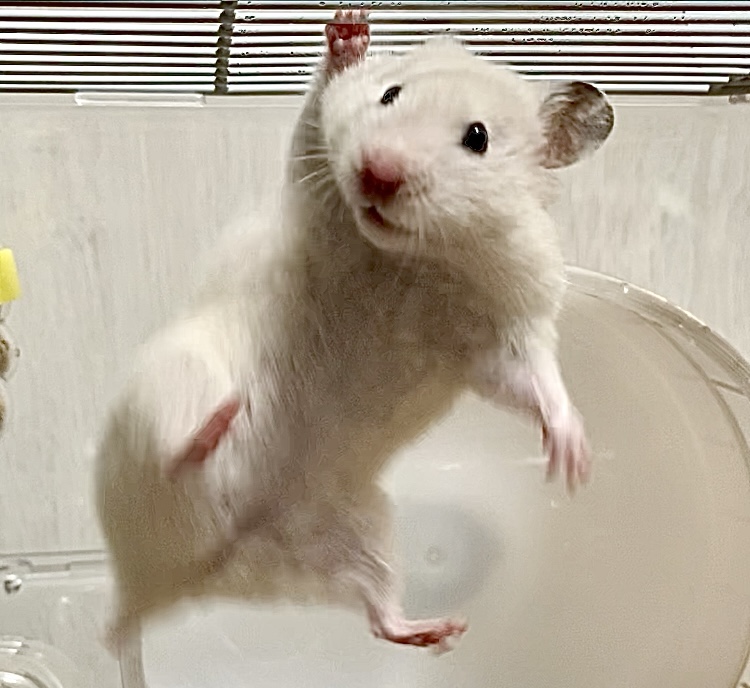
Folding the Ears or Drooping Ears
Folding the ears indicates relaxation, as the hamster is not alert to surrounding sounds and doesn’t have its ears perked up.
This behavior is often observed upon waking up.

Raising the Tail Stiffly
When stroked on the back or lifted by the waist, female hamsters may arch their bodies, raise their bottoms, and stiffen their tails.
This behavior, called “lordosis,” is seen when female hamsters are in heat.
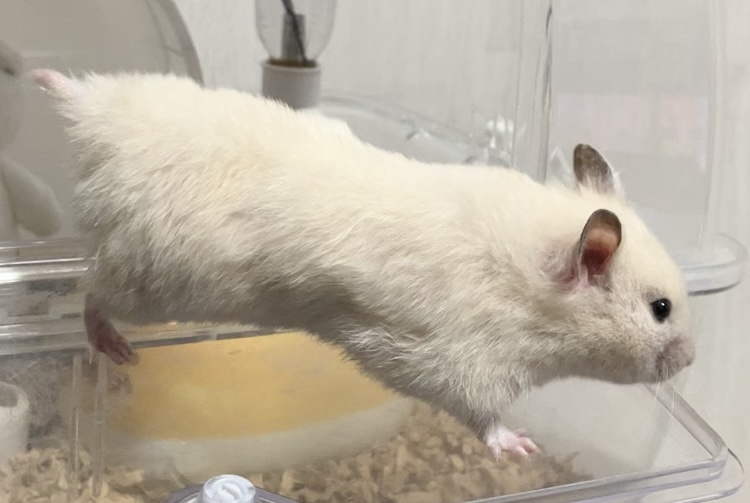
Flipping Over and Struggling While Making Noise
This behavior is mainly observed during hamster fights, indicating a state of panic and fear. They flip over to make it easier to bite and defend themselves.
They also often make squeaking noises.



